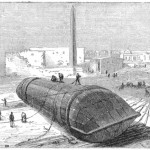Quoted from: Scott, James C. Against the grain: A deep history of the earliest states. Yale University Press, 2017.
Why deplore “collapse,” when the situation it depicts is most often the disaggregation of a complex, fragile, and typically oppressive state into smaller, decentralized fragments? One simple and not entirely superficial reason why collapse is deplored is that it deprives all those scholars and professionals whose mission it has been to document ancient civilizations of the raw materials they require… There are splendid and instructive documentaries on archaic Greece, Old Kingdom Egypt, and mid-third millennium Uruk, but one will search in vein for a portrayal of the obscure periods that followed them: the “Dark Age” of Greece, the “First Intermediate Period” of Egypt, and the decline of Uruk under the Akkadian Empire. Yet there is a strong case to make that such “vacant” periods represented a bolt for freedom by many state subjects and an improvement in human welfare. [Read more…]





